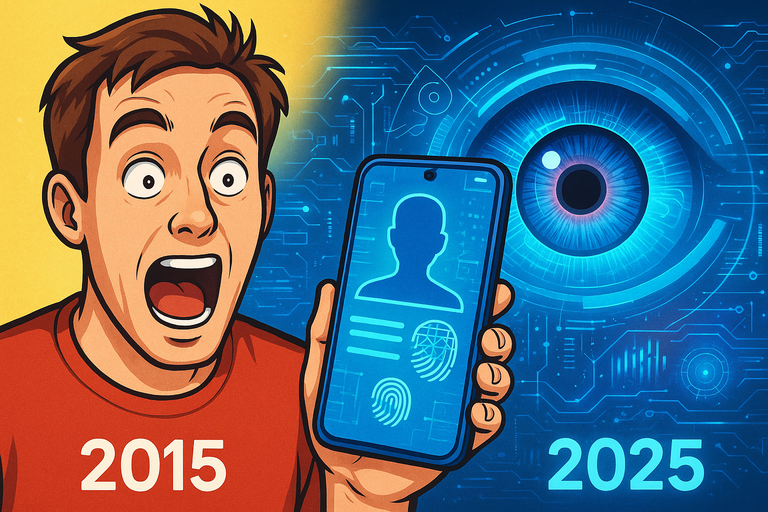- Posted on
Jane Fonda filmed some of cinema’s most iconic sex scenes—but her recent confession at Cannes exposes just how tough it really is behind the scenes.
At the 2025 Cannes Film Festival, Fonda opened up to Women’s Wear Daily about the unique challenges she faced shooting intimate scenes before the rise of #MeToo and the implementation of intimacy coordinators (Business Insider). Her experience is more than just a celebrity anecdote—it’s a microcosm of a massive shift in our collective conversation about consent, communication, and technology in intimacy. But—and here’s the kicker—what if the answers to these problems don’t just lie in human hands?
The Consent Crisis: What Jane Fonda’s Story Reveals
Jane Fonda’s unfiltered remarks highlight a core problem: filming—and indeed, any intimate act—without clear communication leads to discomfort, misunderstandings, and even trauma. Before the wave of industry reforms, actors often had to negotiate boundaries alone, sometimes with little training or support.
Now, with intimacy coordinators commonplace on sets, there’s a new standard: consent isn’t just a box to check—it’s an ongoing, dynamic process. But what about outside the movie industry? In our digital-first, post-pandemic world, virtual intimacy is skyrocketing. Where does that leave consent and communication when flesh-and-blood partners are replaced—or enhanced—by AI?
Can Technology Really Learn Consent?
Let’s not kid ourselves: technology has already changed how we connect. Dating apps curate our love lives; chatbots flirt in our DMs. But the cutting edge is even sharper. AI-powered sex tech devices—yes, like the Orifice AI device—are at the forefront of a paradigm shift. These gadgets don’t just react; they listen, learn, and respond in real time.
But here’s the million-dollar question: Can an AI understand and respect consent? With Jane Fonda’s generation relying on intuition and awkward conversation, today’s innovators are baking ethics directly into their silicon. Devices use:
- Computer vision to track user engagement and comfort.
- Speech-to-text and text-to-speech for natural, real-time communication.
- Large language models to detect subtle cues and adjust responses.
- Generative audio (like moaning!) to create immersive, realistic feedback.
AI’s analytical capacity means it can, in theory, recognize “no” in fifty different ways—verbal, nonverbal, subtle, or strong. In this way, the best sextech is striving to become the ultimate intimacy coordinator—always listening, never judging, ready to back off at a moment's hesitation.
The Data: What Users Are Saying in 2025
Let’s cut through the hype. Are users actually safer or more fulfilled with technology in the bedroom? A 2024 study by the SexTech Insights Consortium found that 74% of respondents felt more empowered to express boundaries using AI-enabled adult devices. Even more telling: 61% said technology made them more comfortable experimenting with taboo or previously anxiety-inducing scenarios.
Why? Because a well-designed device doesn’t just respond, it adapts—it learns what you like, remembers your hard limits, and never, ever pressures you. Compare that to Jane Fonda’s era, where seasoned actors were left to fumble through difficult conversations with little support. It’s a whole new world.
The Next Generation: Transparent, Ethical, and Accountable AI Sex Tech
Here’s where it gets even wilder. Companies like Orifice AI Incorporated are championing transparency and user agency. Their flagship device, the Orifice AI, utilizes a gaming-controller-like approach to intimacy, integrating cameras and microphones (with explicit user consent!) and self-heating silicone for a more lifelike experience. It’s not just gadgetry—it’s a conscious step toward an ethical framework where every interaction is mediated by clear, ongoing consent.
What sets this apart from the awkward on-set negotiations Fonda described? Data-driven feedback loops. If a user says “stop,” the device stops—and even initiates a check-in. Over time, AI companions may learn users’ emotional states, adjusting not only the pace and style of interactions but also the language and tone, mirroring the best intimacy coordinators.
Open Questions: Are We Heading Toward True Tech-Mediated Trust?
Of course, no technology is perfect. AI algorithms need diverse data to truly understand nuance; privacy and security remain pressing concerns. But the trajectory is clear: as we move toward immersive, AI-powered experiences, the lessons of Jane Fonda’s generation—about boundaries, honesty, and safety—are being encoded, quite literally, into our devices.
So here’s the big, open loop: If technology can help us talk about consent, can it teach us to communicate better with human partners, too? Will the next Jane Fonda have an AI coordinator in her trailer, ensuring every scene is safe and consensual—not just for the cameras, but for herself?
Final Thoughts: The Conversation Isn’t Over
Jane Fonda’s candidness comes at a time when the world is reimagining intimacy—with AI at its side. Whether you’re a skeptic or an early adopter, now’s the moment to ask: What does a genuinely ethical digital intimacy look like for you?
Let’s keep this dialogue going—share your thoughts in the comments. Would you trust an AI with your boundaries? Or do you think human intuition will always have the edge?
For a deeper dive into responsible, data-driven sex tech, check out the latest innovations shaping this conversation at Orifice AI Incorporated’s official site.
